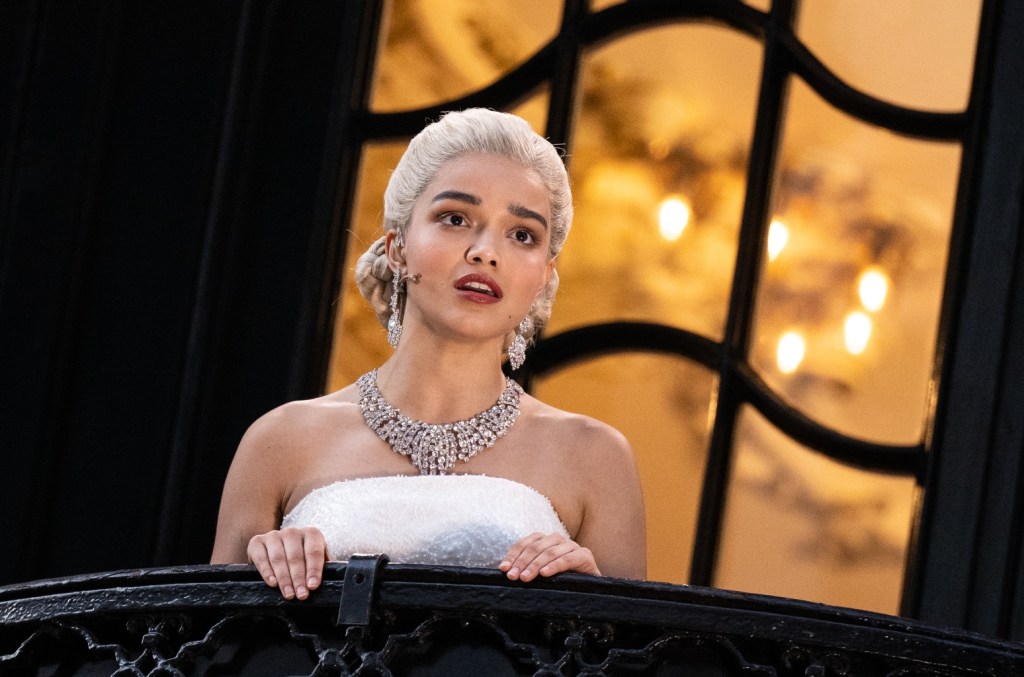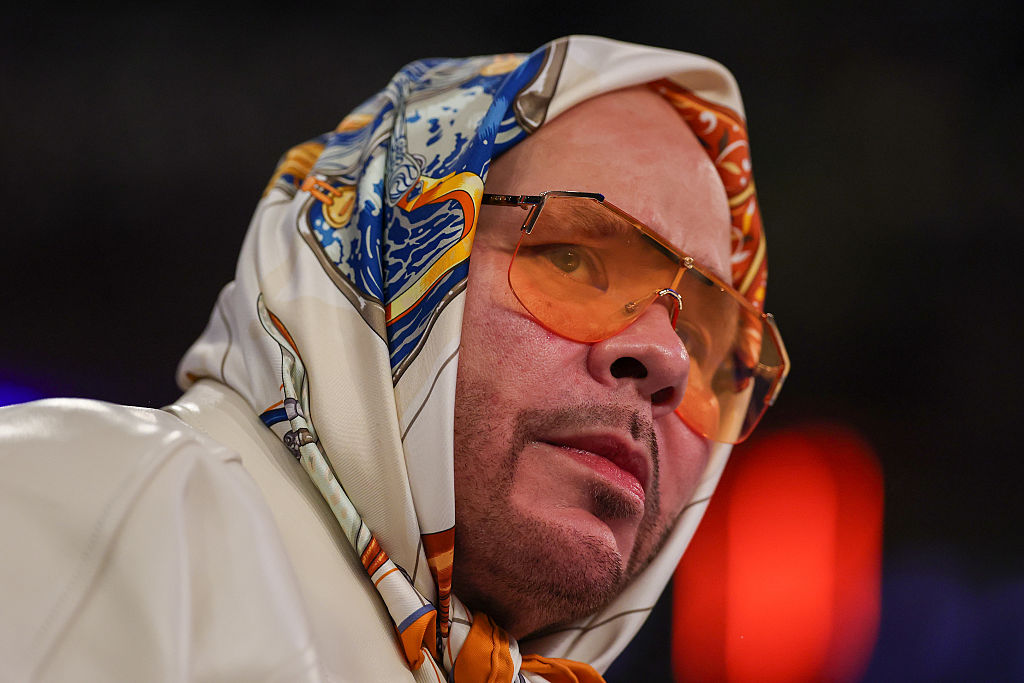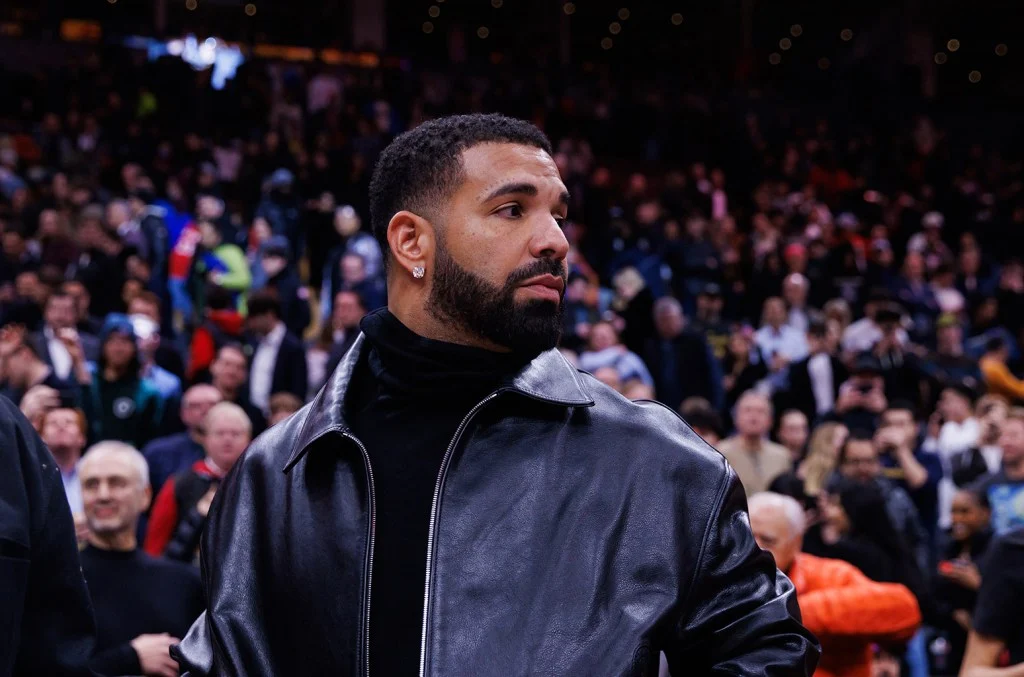News
Page: 241
Hot 107.9’s Birthday Bash Weekend is an exciting four-day celebration packed with events for music and entertainment enthusiasts. Kicking off on Thursday, the festivities include the “Effect Fitness / Cause of E.F.F.E.C.T Metro 5K” and a “Boost Mobile Ticket Raid” for a last chance to win tickets to the main event. The day wraps up with the “Who’s Hot Artist Showcase” at Believe Music Hall. Friday brings the “Welcome to ATL: Birthday Bash Weekend Kickoff Party” at Reverb by Hardrock Rooftop, setting the tone for an unforgettable weekend.
The highlight of the weekend, “Birthday Bash ATL 2025,” takes place on Saturday at the State Farm Arena, followed by two official afterparties at The Dome and Palm Beach Atlanta on Edgewood. The celebration concludes on Sunday with the exclusive “Bash N Brunch: Birthday Bash Finale Brunch” at the Moxy Hotel Rooftop. Sponsored by brands like Boost Mobile, Hennessy, and Amerigroup, this weekend promises a vibrant mix of fitness, music, and nightlife, all powered by Hot 107.9. Tickets and more details are available at BirthdayBashATL.com.
Everything You Missed During #BirthdayBashATL Weekend 2025!
was originally published on
hotspotatl.com
1. Blasian B3 Performs
2. Baby Kia Is In the building
HipHopWired Featured Video
CLOSE
In a new production of Evita, one of the biggest moments isn’t on the stage. Midway through the show, Rachel Zegler, playing Argentine first lady Eva Perón, emerges onto an exterior balcony at the London Palladium and sings “Don’t Cry for Me, Argentina” to whoever is passing by below. The performance is streamed back on video to […]
Source: Al Bello / Getty
Fat Joe is being sued for $20 million by his former hypeman, who has lobbed a litany of sordid claims against the Bronx rapper. The lawsuitalleges that Joe, born Joseph Antonio Cartagena, participated in sex acts with several minors in their teens, amongst other wild claims.
As initially reported by Variety, Terrance “T.A.” Dixon filed a lawsuit in the U.S. District Court Southern District of New York against the “Lean Back: rapper on Thursday, June 19. Dixon was reportedly Joe’s hypeman for over 15 years, giving him front row view of the illicit behavior he described in his 157-page lawsuit.
It’s worth noting that Dixon’s lawyer is Tyrone Blackburn, the same man who is representing Lil Rodney in his lawsuit againt Sean “Diddy” Combs, which also includes some explosive charges against the disgraced mogul. However, Blackburn has developed a rep for representing clients with over-the-top claims that aren’t necessarily credible.
But Dixon claims that over the years Fat Joe coerced him in over 4.000 sexuals acts to keep him in good “standing within the Enterprise. According to Dixon he was pressured “into humiliating situations, including sex acts performed under duress and surveillance, accompanied by threats of abandonment in foreign countries if [he] refused compliance.”
The most egregious claim in the lawsuit is its detailing of Fat Joe allegedly participating sex acts with three Jane Does—one 15-year-old and two 16-year-olds. Also included in the RICO-claiming lawsuit are longtime Fat Joe associates. Pete “Pistol Pete” Torres and Richard “Rich Player” Jospitre, as well as Roc Nation.
Dixon’s lawsuit arrives after he and Blackburn were sued by Fat Joe back in April for slander after alleging on social media that the rapper flew a 16-year-old girl across state lines to engage in sexual intercourse. Joe maintains that Dixon and Blackburn are basically trying to extort him, allegedly.
Fat Joe is being represented by Joe Tacopina, a criminal attorney who has become famed in Hip-Hop circles after representing A$AP Rocky, who acquitted of gun charges and who past clients include Meek Mill, and Donald Trump. In reponse to the lawsuit against Fat Joe, Tacopino told Variety, “The lawsuit filed by Tyrone Blackburn and Terrance Dixon is a blatant act of retaliation — a desperate attempt to deflect attention from the civil suit we filed first, which exposed their coordinated scheme to extort Mr. Cartagena through lies, threats, and manufactured allegations.”
Needless to say, the social media peanut gallery has been going off since news of the lawsuit broke.
This story is developing.
HipHopWired Featured Video
CLOSE
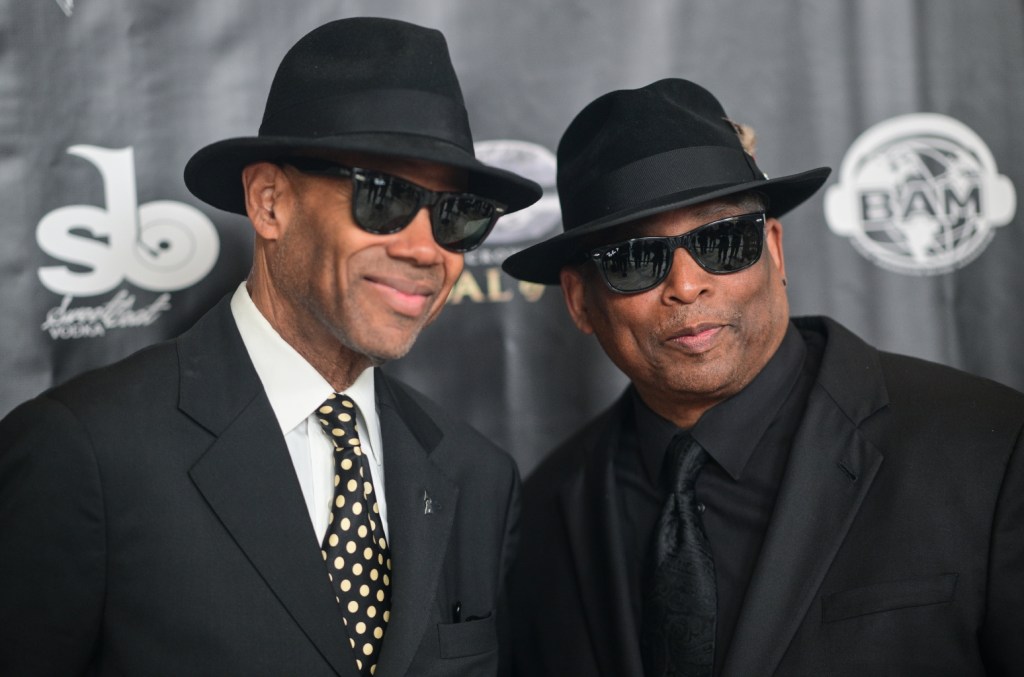
Jimmy Jam & Terry Lewis will receive the Vanguard Award at The Guitar Center Music Foundation’s fourth annual Gala and Benefit Concert, which will take place on Sept. 11 at The Maybourne Hotel in Beverly Hills, Calif. The pair, who have written and produced dozens of hits for such artists as Janet Jackson and Mariah […]
There’s a new big techno festival in Italy, the Adriatic Sound Festival. This year’s fest just ended, having taken place on June 13 and 14 at the airport in Fano, a city in the Marche region on the Adriatic Sea, with two days, two monumental stages, 28 artists, music from 2 p.m. to 2 a.m., and headliners ranging from Rüfüs Du Sol to the “maestro” of techno, Sven Väth. The festival was born big — being a first edition, one wouldn’t expect such levels of production and audience (the organizers declared almost 17,000 total attendees).
The exclusive launch party on Thursday evening (June 12) at the former church of Saint Francis, in the center of Fano, gave a taste of the atmosphere of Adriatic Sound Festival. The location is spectacular: Dating back to the 14th century, the structure shows a stratification of styles where the neoclassical column and the large apse visually dominate. Without a roof, the former church recalls the atmosphere of places such as the Abbey of San Galgano in Tuscany or the Convento do Carmo in Lisbon.
Trending on Billboard
The architectural elements were revitalized by the elegant play of lights and lasers, in an ideal dialogue between past and present. It was in this context that — among others — Franky Wah’s DJ set took place, with his introspective beats. He was joined on stage by 22-year-old guitarist Brandon Niederauer, an artist that at the age of 15 was already playing with Lady Gaga and Stevie Nicks, and also blues legends such as Derek Trucks and Buddy Guy.
It’s a good way to add value to the architectural heritage of Fano, which in turn is an integral part of the fest’s concept, with its references to the Roman past of the city (the ancient Fanum Fortunae) starting from the design of the main stage, which recalls Roman columns and the Arch of Augustus, once the entrance to the city.
The jewel in the crown of Adriatic Sound Festival were its two stages: main stage “The Temple,” with its huge 360-degree open structure, and “The Hangar,” positioned in front of the central hangar of the three present at Fano airport (the other two are embellished visuals in the night hours).
The festival’s parking lot was particularly large, though many spectators used alternative forms of transportation such as bicycles and shuttle buses; ambulances and paramedics were present and clearly visible within the festival area, and there were a good number of food trucks, bars and toilets.
Along with the concept, the location was equally iconic. The choice of Fano Airport was one of the winning ingredients of Adriatic Sound Festival, with an energy a bit like U2’s “Beautiful Day” video. The row of three airport hangars can become the symbolic “skyline” of the festival.
Festival organizers respected the lineup’s schedule, with set changes taking place with minute precision and without interruption. There were no hitches apart from Green Velvet’s last-minute cancellation. He was one of the most anticipated DJs and would have graced the main stage for the final set Saturday night, but was replaced by Nicole Moudaber, who took the stage for a surprise second set after performing a few hours earlier at the Hangar Stage.
In Italy, an event like this has never been seen south of Turin, the de facto capital of the Italian electronic scene, where major festivals such as Kappa FuturFestival, Movement and C2C take place. Precisely because it is still “unexplored” from the point of view of mass tourism and the production of major events, and because it is very close to the historic clubbing district of Rimini and Riccione, this area is in a strategic position for an event like Adriatic Sound.
Throughout the festival, one could hear accents from many different parts of Italy, but also a lot of English. With clear potential in terms of audience — starting with the tourists who normally crowd the Adriatic beaches in the summer — Adriatic Sound has what it takes to truly become an event of European relevance.
This article was originally published on Billboard Italy.
Shakira announced on Thursday (June 19) two new dates for the second leg of her Las Mujeres Ya No Lloran World Tour in Mexico.
The first will take place on Sept. 18 at Mexico City’s Estadio GNP Seguros. The second will mark her first-ever performance in the state of Veracruz, where she will perform at the Estadio Luis Pirata Fuente on Sept. 24. With the new dates, Shakira further breaks her own record of shows in Mexico on a single tour — now reaching a total of 28 on this trek.
“With the announcement of this new date, the Colombian singer solidifies herself as the artist with the most concerts at the iconic Estadio GNP Seguros,” promoter OCESA said in a press release.
Explore
Explore
See latest videos, charts and news
See latest videos, charts and news
“My beautiful Mexico! 12 shows at Estadio GNP! Thank you, thank you, and thank you again for continuing to break records with me. See you soon. I love you!!” Shakira wrote in an Instagram post, where she appears posing with a plaque of recognition from OCESA for her new milestone.
Trending on Billboard
The second leg of her 2025 trek in Mexico kicks off on Aug. 11 at the Estadio Caliente in Tijuana, Baja California, and continues on Aug. 14 at the Estadio Héroes de Nacozari in Hermosillo, Sonora; Aug. 17 at the Estadio UACH in Chihuahua, and Aug. 20 at the Estadio Corona in Torreón, Coahuila.
After making history with seven consecutive sold-out shows at the Estadio GNP Seguros, the Las Mujeres Ya No Lloran World Tour will return to Mexico City to complete another series of five shows on Aug. 26, 27, 29, and 30, and Sept. 18, for a total of 12 performances. This will make Shakira the first artist to achieve such a number of concerts at the venue (formerly known as Foro Sol).
The superstar, who has been adding dates to the tour as tickets continue to sell out, will also match Grupo Firme’s record of eight shows at Estadio GNP Seguros. The band is scheduled to perform their eighth show there on June 28.
The success of Shakira’s monumental tour has led the “Hips Don’t Lie” singer to top Billboard‘s monthly Top Tours ranking for the first time, generating $32.9 million with 282,000 tickets sold in February, according to figures reported to Billboard Boxscore. The following month, she again led the chart and broke records by earning $70.6 million from 11 reported shows — more than any artist has ever generated in a single March since the ranking’s launch in 2019.
Shakira’s tour has left an indelible mark on Latin America, drawing more than one million fans, according to OCESA. Also this year, the Barranquilla-born star was ranked No. 1 among Billboard’s Best 50 Female Latin Pop Artists of All Time.
Bruce Springsteen is opening up about his upcoming biopic Deliver Me From Nowhere.
In a new interview with Rolling Stone, the 75-year-old rock icon shared his thoughts on director Scott Cooper’s upcoming film, which is set to hit theaters on Oct. 24.
Though Springsteen’s touring schedule limited his time on set, he said The Bear actor Jeremy Allen White and the crew were gracious during his visits.
Explore
Explore
See latest videos, charts and news
See latest videos, charts and news
“Jeremy Allen White was very, very tolerant of me the days that I would appear on the set,” Springsteen told the publication. “I said to him, ‘Look, anytime I’m in the way, just give me the look and I’m on my way home.’ So the days that I got out there, he was wonderfully tolerant with me being there. And it was just fun. It was enjoyable.”
Still, The Boss admitted that he avoided being present for certain emotionally intense moments during filming.
Trending on Billboard
“I mean, there’s some unusualness to it because the movie involves, in some ways, some of the most painful days of my life,” he said. “If there was a scene coming up that was sometimes really deeply personal, I wanted the actors to feel completely free, and I didn’t want to get in the way, and so I would just stay at home.”
Deliver Me From Nowhere is based on Warren Zanes’ book of the same name and chronicles the making of Springsteen’s 1982 acoustic album, Nebraska. Check out a recap of the film’s first trailer here.
The film features Allen as Springsteen, Jeremy Strong as longtime manager Jon Landau, Stephen Graham as the musician’s father, Odessa Young as his girlfriend, Gaby Hoffmann as his mother, Marc Maron as producer Chuck Plotkin, and David Krumholtz as a Columbia Records executive.
Earlier this year, Springsteen told SiriusXM’s E Street Radio that seeing White play him on screen took some getting used to.
“A little bit at first, but you get over that pretty quick and Jeremy is such a terrific actor that you just fall right into it,” he said. “He’s got an interpretation of me that I think the fans will deeply recognize and he’s just done a great job, so I’ve had a lot of fun. I’ve had a lot of fun being on the set when I can get there.”
For his part, White has said he spent hours studying video footage and worked closely with a vocal coach to capture Springsteen’s unique voice and cadence.
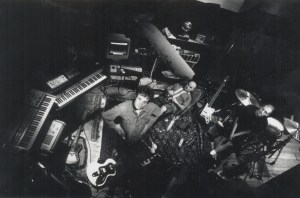
In 1995, the Argentine rock trio Soda Stereo returned to the studio after a three-year hiatus to record a brand-new album, Sueño Stereo (Stereo Dream), its seventh and final project. At the time, no one knew this would be the band’s farewell record. Its predecessor, Dynamo, was its most experimental and eclectic work, showcasing a complete turnaround of its new wave style over the previous decade. Sueño Stereo continued this exploration — an alternative album with a noticeable British influence, full of electronic sounds and violins, cellos and violas on many tracks.
The 1990s brought a completely different flow from the ’80s new wave that made Soda Stereo famous. As the alternative rock movement gained popularity in the U.S. and Europe, listeners also increased in Latin America, and Soda Stereo embraced it and made the genre its own. After 10 years of working nonstop, releasing album after album and touring Latin America, the band decided to experiment and created an utterly progressive rock album that fans and other artists still praise 30 years later.
Trending on Billboard
“Latin American rock DNA is partly based on a tremendous sense of inferiority because it always copied everything that was happening in England and the United States,” Ernesto Lechner, a music journalist from Argentina who has lived in the U.S. since the 1990s, tells Billboard. “Soda Stereo changed that.”
Soda Stereo revolutionized Latin rock history with their new sounds and exploration of diverse musical genres. That style would become the stamp of the lead singer Gustavo Cerati’s artistry, which he would perfect in his first solo album, Bocanada (1999), after Soda Stereo disbanded in 1997. Sueño Stereo, released on June 21, 1995, became the band’s magnum opus.
“Sueño Stereo, for me is, without a doubt, without discussion, Soda’s best album,” Lechner adds. “It’s a glorious record. A psychedelic rock album — electronic rock with moments of ambient music, a very sophisticated thing. It was like a full circle.”
“Is like the final masterpiece, very refined and perfect,” Valeria Agis, editor of Argentine newspaper La Nación, tells Billboard of the set, which in 2012 was ranked fourth by Rolling Stone in its 10 greatest Latin rock albums of all time.
Sueño Stereo’s journey begins with the alternative rock of “Ella Usó Mi Cabeza Como un Revólver,” a melancholy, complex track that presented a string arrangement of viola, violin and cello. A significant change also came with “Disco Eterno” and “Zoom,” two neo-psychedelic pop-rock songs on the set that became classics in the band’s repertoire.
Further into the album, The Beatles’ influence became apparent with the Britpop tracks “Paseando Por Roma” and “Ojo de la Tormenta.” The set concludes with a surprising shift in the last three songs, instrumentals in which the psychedelic sounds mash up with electronic ones.
For Soda’s bassist Zeta Bosio, it was the album that allowed him to keep going. A year before the release, his 2-year-old son Tobías had died in a car accident. “That was the album that brought me back to life a little, back to reality,” he tells Billboard. But it was also the album that brought the band back together as a family, allowing them to “become an organism where we could feel what the other was going to do.”
Drummer Charly Alberti felt it too. The album “presents us already at a really high musical level, the three of us,” he adds. “Things would come together really organically.”
Soda Stereo
Cecilia Amenábar
Within 15 days of its release, Sueño Stereo went platinum, making it an instant hit in Argentina and all over Latin America. Still, two years later, the band decided to end its 15-year journey together with the farewell tour El Último Concierto (The Last Concert), which culminated in a final show at the Estadio Monumental in Buenos Aires — a performance that left us not only with the live album and DVD of the same name, but also with Cerati’s iconic phrase “Gracias totales” (which literally means “total thanks” but does not translate perfectly into English).
Cerati took the time to focus on his personal projects. In 1999 he released Bocanada, the album he considered his official solo debut, although he had previously released two sets during Soda Stereo’s hiatus before Sueño Stereo. In this context, Bocanada, which means breath or puff, is used metaphorically to symbolize a “new breath of creativity,” as Cerati noted that the songs were coming to him very easily.
In 2007, Soda Stereo reunited for the Me Verás Volver Tour (You Will See Me Return), which took them all over Latin America and some U.S. states, including Florida and California. The trek began and finished at River Plate, Buenos Aires’ biggest stadium with a capacity of 70,000, where they performed six sold-out nights — five more than in 1997.
Soda Stereo was planning a few additional shows, even one in Spain, a market they never got to conquer. According to Bosio, the doors were open to doing more with the band. “The music was still intact. It was like we were entering a new stage of maturity and starting to understand things in a different way,” he says. “[But] being Soda Stereo always came with a lot of pressure. Especially for Gustavo, who was the main songwriter.”
In 2010, Cerati suffered a stroke after finishing a concert in Caracas, Venezuela, while promoting his last solo album, Fuerza Natural. He remained in a coma until his death on Sept. 4, 2014, at the age of 55.
But it was Sueño Stereo that prepared the ground for what came later. Sueño Stereo didn’t mark the end; it was the beginning of a new sound that still echoes 30 years later.
“One of our goals for this album was to take a subtractive approach,” said Cerati, as quoted in the book Cerati en Primera Persona (Cerati in First Person) by Maitena Aboitiz. “It was like saying: ‘Let’s pull back a bit’ — not to keep a low profile, but because we didn’t need to repeat the same thing over and over.”
Solo, Cerati had the freedom to do whatever he wanted, in his own words. With Soda, the exploration that began with Dynamo and that the band perfected with Sueño Stereo reached its highest point. The outcome was one of their most important pieces and one of rock’s greatest bodies of work, influencing artists all over Latin America and the world for years to come.
President Donald Trump on Thursday (June 19) signed an executive order to keep TikTok running in the U.S. for another 90 days to give his administration more time to broker a deal to bring the social media platform under American ownership.
Trump disclosed the executive order on the Truth Social platform Thursday morning.
“As he has said many times, President Trump does not want TikTok to go dark. This extension will last 90 days, which the administration will spend working to ensure this deal is closed so that the American people can continue to use TikTok with the assurance that their data is safe and secure,” White House press secretary Karoline Leavitt said in a statement on Tuesday.
It is the third time Trump has extended the deadline. The first one was through an executive order on Jan. 20, his first day in office, after the platform went dark briefly when a national ban — approved by Congress and upheld by the U.S. Supreme Court — took effect. The second was in April when White House officials believed they were nearing a deal to spin off TikTok into a new company with U.S. ownership that fell apart after China backed out following Trump’s tariff announcement.
Trending on Billboard
It is not clear how many times Trump can — or will — keep extending the ban as the government continues to try to negotiate a deal for TikTok, which is owned by China’s ByteDance. While there is no clear legal basis for the extensions, so far there have been no legal challenges to fight them. Trump has amassed more than 15 million followers on TikTok since he joined last year, and he has credited the trendsetting platform with helping him gain traction among young voters. He said in January that he has a “warm spot for TikTok.”
“We are grateful for President Trump’s leadership and support in ensuring that TikTok continues to be available for more than 170 million American users and 7.5 million U.S. businesses that rely on the platform as we continue to work with Vice President Vance’s Office,” the company said in a statement.
As the extensions continue, it appears less and less likely that TikTok will be banned in the U.S. any time soon. The decision to keep TikTok alive through an executive order has received some scrutiny, but it has not faced a legal challenge in court — unlike many of Trump’s other executive orders.
Jeremy Goldman, analyst at Emarketer, called TikTok’s U.S situation a “deadline purgatory.”
The whole thing “is starting to feel less like a ticking clock and more like a looped ringtone. This political Groundhog Day is starting to resemble the debt ceiling drama: a recurring threat with no real resolution.”
That’s not stopping TikTok from pushing forward with its platform, Forrester analyst Kelsey Chickering says.
“TikTok’s behavior also indicates they’re confident in their future, as they rolled out new AI video tools at Cannes this week,” Chickering notes. “Smaller players, like Snap, will try to steal share during this ‘uncertain time,’ but they will not succeed because this next round for TikTok isn’t uncertain at all.”
For now, TikTok continues to function for its 170 million users in the U.S., and tech giants Apple, Google and Oracle were persuaded to continue to offer and support the app, on the promise that Trump’s Justice Department would not use the law to seek potentially steep fines against them.
Americans are even more closely divided on what to do about TikTok than they were two years ago.
A recent Pew Research Center survey found that about one-third of Americans said they supported a TikTok ban, down from 50% in March 2023. Roughly one-third said they would oppose a ban, and a similar percentage said they weren’t sure.
Among those who said they supported banning the social media platform, about 8 in 10 cited concerns over users’ data security being at risk as a major factor in their decision, according to the report.
Democratic Sen. Mark Warner of Virginia, vice chair of the Senate Intelligence Committee, said the Trump administration is once again “flouting the law and ignoring its own national security findings about the risks” posed by a China-controlled TikTok.
“An executive order can’t sidestep the law, but that’s exactly what the president is trying to do,” Warner added.
Drake is getting candid about his recent gambling misfortunes.
On Wednesday (June 18), the 38-year-old rap superstar took to social media to reveal the millions he’s lost through sports betting over the past month.
“Gotta share the other side of gambling…,” Drake wrote on his Instagram Story alongside a screenshot of his hefty losses. “Losses are so fried right now I hope I can post a big win for you all soon cause I’m the only one that has never seen a max these guys max once a week.”
According to the post, the Toronto MC placed nearly $125 million in bets over the past month, resulting in about $8 million in losses. While Drake didn’t detail which specific wagers led to the downturn, recent NBA and NHL playoff games have dominated the sports betting scene.
Earlier this month, he revealed a $750,000 bet on a cricket match, backing the Royal Challengers Bengaluru to beat the Punjab Kings. The post, which tagged gambling platform Stake — with whom Drake has an endorsement deal — is just one of many high-stakes wagers he’s publicly shared.
Trending on Billboard
This isn’t the first time the OVO boss has taken a major hit. Earlier this year, Drake bet $1.25 million on the Toronto Maple Leafs to win game seven and advance to the Eastern Conference Finals — only for the NHL team to fall to the Florida Panthers.
“I am a flawed sports better,” he recently admitted in a mock interview on Instagram this while promoting his partnership with Stake. “I will not deny that. That’s not my gift. I’ll let everybody roll with it. I’m sure if you’re a Drake curse believer, there will be plenty more content in the future to confirm your theories because my slips do not cash out. But one day I’m gonna have a parlay that’s insane.”
Despite the recent losses, Drake isn’t backing down. In another IG Story post on Wednesday, he revealed an $800,000 bet on game six of the 2025 NBA Finals. With the Oklahoma City Thunder leading the series over the Indiana Pacers, Drizzy placed $600,000 on a Thunder win and another $200,000 on them winning by a 6–10 point margin. If both bets hit, his total payout would be an estimated $1.7 million.
In music news, Drake is rumored to be working on a new album, reportedly titled Iceman, which many fans expect to drop before the end of 2025. While the rap star hasn’t confirmed or denied any details about the project, fellow artist Smiley recently hinted that Drake has been putting in serious work on something new.

 State Champ Radio
State Champ Radio 